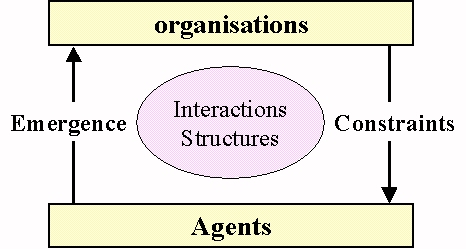
 |
Moduleco
|

Multi-agent systems are popular in computing science and within the domain of artificial intelligence. Generally, the Agent is defined as referring to a software component which is capable of acting in order to accomplish a specific task, such as finding information on the Internet.
In the theoretical research Area, Multi-agent systems were introduced in order to simulate "life" and investigate "historical" questions (like life emergence, or species co-evolution by experiments "in silico", (Langton [1995.]) as well as to simulate with very simple rules the complex behavior of animals, like flocks of birds (Reynolds [1987]). The interest in Multi-agent systems in Economics is strongly correlated with the Artificial life Movement (Lane [1993]).
The most famous Multi-agent systems is SWARM, initiated by Langton [1995]. Applications to the economic field are reviewed by Luna, Stefansson [2000]. Some others (Parker's Ascape, Valente's LSD, among Others...) are listed at the end of bibliography
This paper is dedicated to the presentation of MODULECO, a Multi-agent system, built in order to simulate a market phenomenon in a "virtual lab", and more generally models of social choices involving both individual learning and collective learning.
Denis.Phan@enst-bretagne.fr ; Antoine Beugnard@enst-bretagne.fr